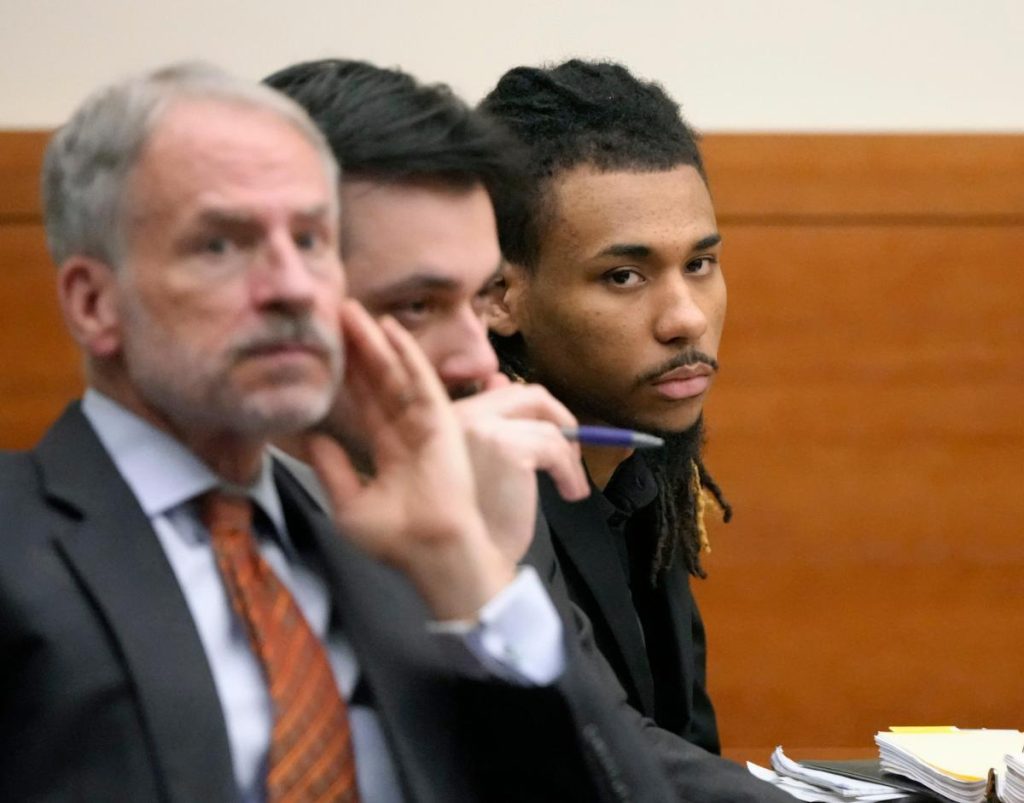A man was found guilty of murder for fatally shooting another man after a pickup basketball game at a Columbus gym. The incident resulted in tears from both mothers involved, as they shared a moment of understanding. The shooter, Tae’Von Bush, admitted to shooting Tabias Cunningham in what he claimed was self-defense. However, the jury convicted Bush of two counts of murder and acquitted him on a charge of aggravated murder. Bush was sentenced to life in prison without the possibility of parole for at least 23 years, with the judge rebuking him for his actions.
During the trial, Bush testified that Cunningham had made verbal threats towards him during the basketball game, leading to a confrontation where Bush fatally shot Cunningham. The prosecutor argued that Bush had ample time to leave the scene before the shooting but instead chose to approach Cunningham with a gun. The shooting resulted in Cunningham being struck twice in the back and ultimately succumbing to his injuries at a local hospital. Eyewitnesses identified Bush as the shooter, and he was later apprehended after fleeing the scene.
Bush’s defense attorney argued that his client was acting out of fear and had no intention of killing anyone, highlighting the prevalence of gun violence in the community. The prosecutor countered by accusing Bush of escalating a minor disagreement into a deadly confrontation, and criticized the use of a gun in what could have been resolved without violence. Before the trial, Bush had pleaded guilty to carrying a concealed weapon and having a weapon while under disability, further complicating the case.
The sentencing of Bush sparked emotions in the courtroom, with the judge emphasizing the gravity of the situation and the irreversible consequences of his actions. Despite Bush’s claims of self-defense, the jury found him guilty of purposefully killing Cunningham, leading to a life sentence without parole. The tragic incident underscored the devastating impact of gun violence in the community and raised questions about conflict resolution and the use of deadly force. In the aftermath of the trial, both families were left to cope with the loss and the legal process that followed.
The case highlighted the complexities of legal proceedings involving violent crimes and the emotional toll it takes on all parties involved. The verdict served as a reminder of the consequences of resorting to violence to resolve conflicts and the need for peaceful solutions. The lasting impact of the shooting on both families underscored the need for community support and understanding in the face of tragedy. As the legal process unfolded, it shed light on the challenges of navigating the justice system and seeking accountability for acts of violence. Ultimately, the case served as a somber reminder of the devastating consequences of gun violence and the importance of promoting peace and understanding in communities.


